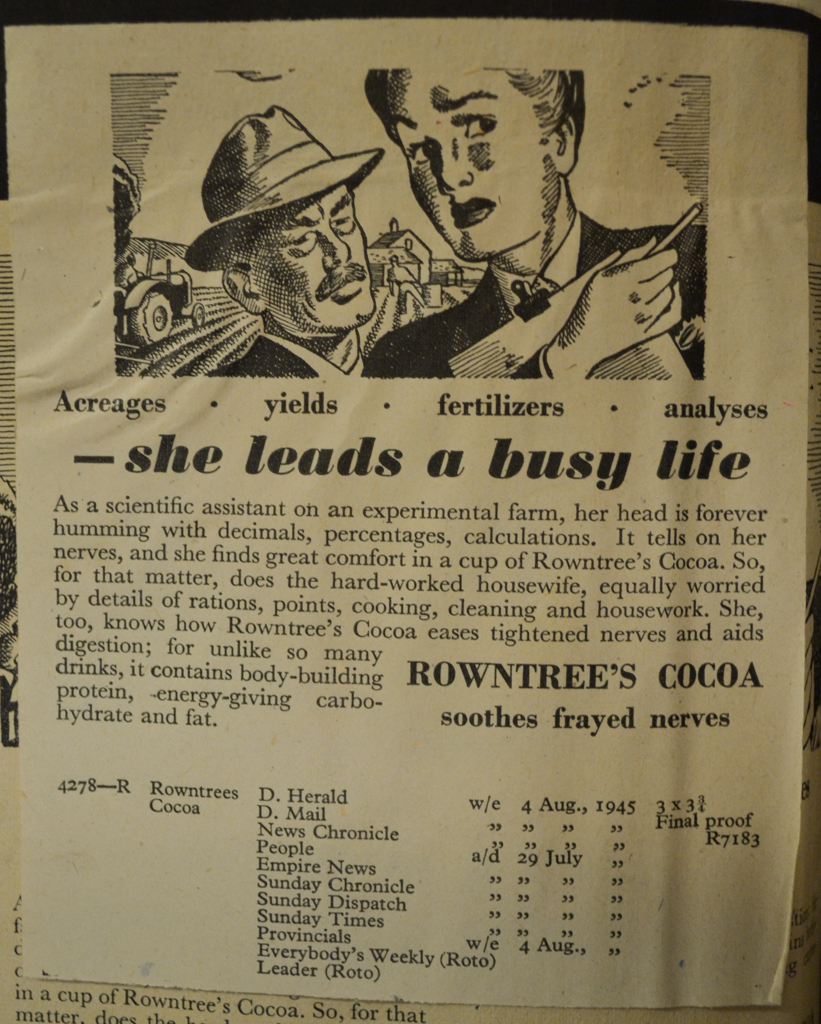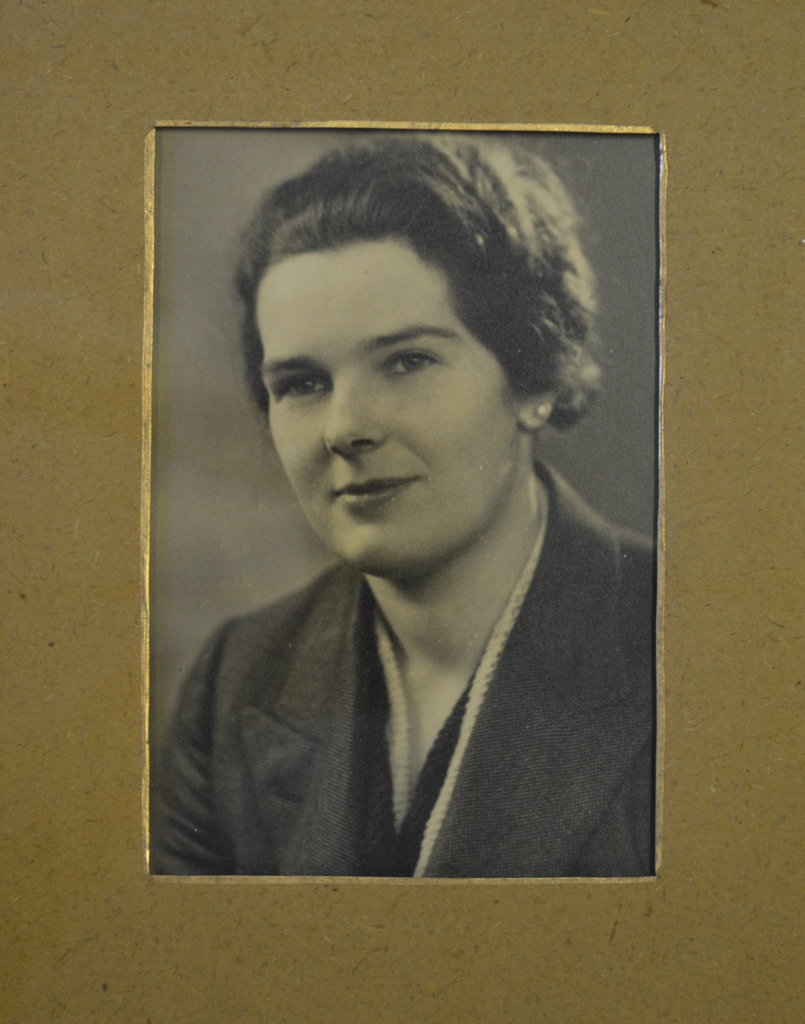By Dr. Namrata R. Ganneri
On 4th February 2020, a dedicated Wikipedia Editathon on Yorkshire's women scientists and innovators will be run at the University of York. The upcoming United Nations International Day of Women and Girls in Science, aimed at raising issues of equity and access and held annually on 11th February, nicely bookends this event. It is believed that along with combating gender-based prejudices, drawing attention to a diverse set of role models and career trajectories of scientists fosters in young people a broader appreciation of the pathways to science. With women's uptake of careers in STEM (Science, Technology, Engineering, and Mathematics) at a dismal 22% in the UK, the task of visibilizing and celebrating the achievements of women is more urgent than ever.
 |
| From the Rowntree Cocoa advertising campaign |
This Editathon thus aims to expand digital editing skills across a broad range of genders (and non-binary identities) and seeks to highlight and bridge the content gap on Wikipedia. A University-wide call for entries to be added and edited highlighted the names of many exceptional contemporary scientists and academics from within the University, including the much-decorated Pro-Vice Chancellor of Research, Professor Deborah Smith and the outstanding physicist, Professor Sarah Thompson among others. Microbiologist Hilary Lapin Scott, who is based at Swansea University and who passionately draws attention to the leaky pipeline in science was also nominated.
In response to this call, the Borthwick Institute for Archives identified a number of archives that tell the stories of innovative women and women-affiliated organizations in Yorkshire.. I was particularly fascinated by the landscape gardener Fanny Rollo Wilkinson (1855-1951), the daughter of a leading doctor from Manchester. Her wealth and social connections meant that Wilkinson had what can be called high ‘science capital’. Wilkinson chose to enrol in an eighteen-month course at the Crystal Palace School of Landscape Gardening and Practical Horticulture which had till then trained men from the artisan class. While women had been involved in domestic gardening, Wilkinson was one of Britain’s first professional landscape gardeners who conducted her practice from Bloomsbury. She was the landscape gardener to both Octavia Hill’s Kyrle Society and the Metropolitan Public Gardens, Boulevard, and Playground Association (MPGA), laying out over 75 public gardens for the MPGA that spanned London from Wandsworth to Plaistow and from Camberwell to Haverstock Hill. She resigned from this position in 1904 to concentrate on her role as first woman principal of Swanley Horticultural College. This college, originally founded in 1880 to train men in the practice of scientific horticulture, had slowly been transformed into a women-only establishment. Fanny Wilkinson remained as principal until 1916 and continued to patronise many such institutions till the end of her life.
The Borthwick holds letters exchanged between Wilkinson and her mother as well as other associates and relatives, which offer insights into the personal and professional life of this extraordinary woman professional. More information about the Fanny Rollo Wilkinson letters can be found here.
 |
| Catherine Muriel 'Kit' Rob |
The feminist historian of science Londa Schiebinger, argues that recovering lost voices is an important conceptual approach to mapping the field of gender and science. She points out that this approach coheres neatly with the academic field of women’s history. In any case, it was only in the 1970s that a sizeable number of women began formally entering the sciences (in the western world). Some published biographies. The consumption of these biographies led to questions about why women’s work has been relegated to the periphery of science, which cascades into other inequalities like lower pay and less prestigious appointments and leads to disillusionment and attrition. Finally, these gender-based patterns of exclusion may have actually even distorted the overall norms and methods of scientific practice.
These observations, in fact, complete the full circle of women’s online presence on Wikipedia along with their marginal presence among the small, online community of (English) Wikipedia editors who are largely male English speakers hailing from the Northern Hemisphere. This Editathon is a small step towards building capacity for an inclusive, global, online community and democratizing access to information. As some volunteer editors have chosen to surface information from archival collections, one can only hope that the changing constructions of information and history in a digital age will also be highlighted.
For more information on how you can participate as an editor in the Wikipedia community, see the Wikipedia editing guide.
No comments:
Post a Comment
Note: only a member of this blog may post a comment.